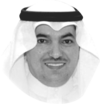The Saudi religious discourse: Moderation in the face of extremism

https://arab.news/gatuk
The religious landscape in Saudi Arabia might appear somewhat ambiguous to some within Arab communities, necessitating a closer look at the characteristics, roles and recent concerns of the Saudi religious discourse. This scrutiny is especially relevant after Saudi Arabia shed its traditional image and embarked on a path toward development, innovation and revitalization. The Saudi intellectual sphere has been increasingly focused on the question of progress across all dimensions and pillars of society.
It has become evident to Saudi thinkers that achieving meaningful progress cannot be fully realized without a comprehensive renewal of religious discourse. This renewal aims to uphold foundational principles while preserving and reconciling Sharia’s sublime objectives with real-life interests.
The primary characteristic of contemporary Saudi religious discourse is the emphasis on preserving religious fundamentals. This is where extremists have faltered, failing to distinguish between immutable and adaptable elements, between what is conjectural and what is definitive, and between what is rooted in scripture and what is shaped by societal customs, norms and traditions.
Societal constraints stemming from modernity, societal development and globalization also present challenges that no country can completely control or dominate without risking internal societal imbalance and potential conflict with international institutions and human rights standards.
In the 1990s, for example, Algeria experienced a surge of extremist voices that began to excommunicate society and resorted to violence against it. They failed to accurately distinguish between Islamic constants and variables, certainties and conjectures. The Algerian state was eventually able to overcome these extremist elements and promote a discourse based on moderation and compromise that was more aligned with the values of balance and coexistence within society.
The second characteristic of the new Saudi religious discourse is its ability to blend authenticity with modernity. This approach does not sanctify heritage but respects it and views it with fairness. It upholds the immutable aspects, accepts them and integrates them into society so that the traditional and the modern converge, forming a conscious society capable of discernment, activation and renewal.
The Saudi religious discourse is deeply connected to reality, recognizing the complexity and intricacy of contemporary life, which presents challenges that were unknown to ancient societies or even to the Saudi state in its early stages. This approach also aims to prevent Islam from being perceived negatively by people in both the East and the West. Preserving religion, which is the most crucial objective of Shariah, has been a core goal for the Kingdom.
A sense of duty has driven Saudi Arabia to take decisive and impactful positions on key issues affecting the Islamic world.
Dr. Mohammed Al-Sulami
The third feature of the Saudi religious discourse is its inclusive nature, as opposed to being divisive or inciting discord. This approach positions the discourse as fundamentally humanitarian. It does not aim to deny or eliminate differences, recognizing that such an endeavor is impossible. Instead, it calls for respecting and coexisting with these differences, keeping them within their natural boundaries without exaggeration or underestimation, as long as they remain within scholarly and academic contexts. The “Building Bridges” document, issued by the Muslim World League in Makkah in March, solidified this inclusive approach.
On the other hand, some countries and groups are attempting to spread violence and chaos in the region, driven by sectarian motives or short-term self-interests. These countries, sometimes directly and not only through their proxies, have not yet recognized the region’s need for a rational, wise and enlightened religious discourse that rejects violence and war and instead promotes a renaissance and civilization befitting the peoples of the region. What is perplexing is that they employ sectarianism as if it was a call for civil war within the Islamic world, all while completely disregarding the current tragedy in Gaza.
In conclusion, some people are talking about the leading Saudi role. This sense of duty has driven Saudi Arabia to take decisive and impactful positions on key issues affecting the Islamic world. In contrast to other countries that have pursued more controversial actions during sensitive periods, such as maintaining trade relations with Israel or making empty threats without taking real action, Saudi Arabia has refrained from such conduct. The Kingdom has instead focused on being a leading donor and steadfast supporter of Palestine over the decades, reflecting its commitment to the Palestinian cause at both the leadership and popular levels.
The Saudi leadership, embodied by an ambitious young generation, is dedicated to fostering peace and stability in the region. This aligns with the broader vision of Islam, which emphasizes peace as a core value. The leadership is intent on avoiding unnecessary conflicts, focusing instead on combating extremism and terrorism — issues that have plagued the region since the 1970s. Furthermore, the Saudi leadership has articulated a clear vision to transform the Middle East into a new hub of prosperity and progress, comparable to Europe. This ambitious renaissance project is not confined to Saudi Arabia alone but extends to the entire region. The leadership believes that regional development is intrinsically tied to Saudi Arabia’s own progress.
The new Saudi religious discourse is characterized by its rationality and humanitarian tinge, striving to address the challenges of civilizational progress for Saudi Arabia, the Arab world and the broader Muslim community. It actively works to counter extremist ideologies, rejecting violence and promoting coexistence. While it may not yet have achieved its ultimate form, this discourse is on a path of continuous development and improvement. There is hope for future collaboration and exchange of expertise between Saudi Arabia and other countries, particularly in the areas of combating extremism and fostering moderation and compromise.
- Dr. Mohammed Al-Sulami is the founder and president of the International Institute for Iranian Studies (Rasanah). X: @mohalsulami








































